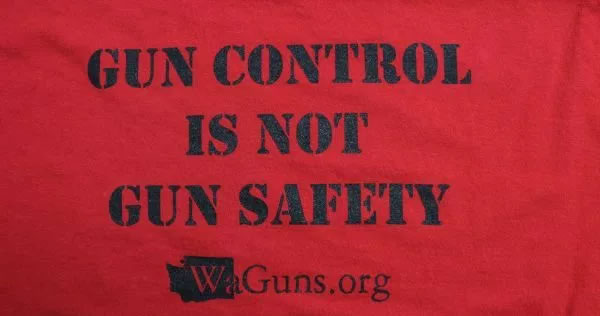
Buried in the online Wikipedia account of the circumstances surrounding the tragic school shooting at Marjory Stoneman Douglas High School in Parkland, Fla., is a notation that at the time, Broward County Schools Supt. Rob Runcie stated that “now is the time to have a real conversation about gun control legislation.”
The website Fastcompany.com has a list of gun control laws passed since the Feb. 14, 2018 shooting that claimed the lives of 17 students and adults at the school. Nowhere in any of those laws is there mention of harsher penalties for people who commit such mayhem.
In some states, law-abiding young adults have been stripped of their Second Amendment right to purchase and own semiautomatic rifles even though they committed no crime. Bump stocks have been banned in reaction to the single known case when a mass shooter in Las Vegas used one or more guns equipped with the devices. So-called “Red flag” laws have been passed to disarm people who might pose a threat to themselves or others. Restrictions on the rights of honest citizens who had nothing to do with Parkland or any other violent crime have been adopted or are under consideration in state legislatures. Washington voters adopted a sweeping gun control measure disguised as a school safety effort, but it is now being challenged in federal court and sheriffs in several Washington counties have announced they will not enforce provisions of the new law.
Meanwhile, Nikolas Cruz, the accused Parkland killer, has yet to actually stand trial as his defense attorneys reportedly want to swap a guilty plea in exchange for taking the death penalty off the table, according to CNN.
If those aren’t adequate talking points for a conversation, here are some more.
The Las Vegas Review Journal reported this week that two men have been charged with stealing “dozens of firearms” during the recent Shooting, Hunting and Outdoor Trade (SHOT) Show. The newspaper said the suspects were “released on their own recognizance, though U.S. Magistrate Judge Nancy Koppe restricted them from possessing weapons while out of custody.”
The New York Times reported back on Jan. 8 that a “Background Check Bill Marks Gun Control as a Priority for House Democrats.” But by some turn of semantics, between then and Wednesday, “gun control” became “gun safety” as the priority of House Democrats.
Any “real conversation” about gun legislation needs to be candid enough to acknowledge up front that this is about “control” not “safety.” The gun control lobby should stop hiding behind terms such as “safety” or “reform.”
Second Amendment activists insist that any conversation must recognize up front that the U.S. Constitution and a majority of state constitutions enumerate an individual right to bear arms, not a government-regulated privilege. Rights are special. A permit should not be a requirement to exercise them, because a permit denotes receiving permission from some bureaucracy in order to do something for which permission should not be a prerequisite.
Rights should never be subject to a popularity vote, and any limitation on a right must be subject to a strict scrutiny standard.
Guns can be dangerous, and when someone deliberately misuses one, they need to be held accountable, rather than penalizing all gun owners. If someone steals a firearm and uses it in a crime, that person – not the gun owner – should be punished, say gun rights activists. Victims of auto theft aren’t penalized when a thief uses their stolen car in the commission of a crime.
So-called “gun-free zones” disarm the wrong people, and they don’t work, according to rights activists. Schools are “gun-free zones.” That didn’t prevent the Parkland attack, or the Sandy Hook Elementary tragedy, or Thurston High School, or any other school shooting. Ditto shootings at shopping malls or any other venue where firearms may be prohibited.
Firearms education is good, but mandated training (literacy tests, say critics) in order to purchase a firearm, not so much. The bar could be set so high as to discourage people from exercising their rights, which many gun owners believe is the intention of such requirements.
In order to prevent firearms accidents among children, many activists believe genuine gun safety courses should be part of the public school curriculum. After all, “if it saves even one life” is a popular defense of gun control legislation.
Lastly, if someone doesn’t like guns, and doesn’t want to own one, that’s their business. If their neighbor owns a gun, that’s none of their business.